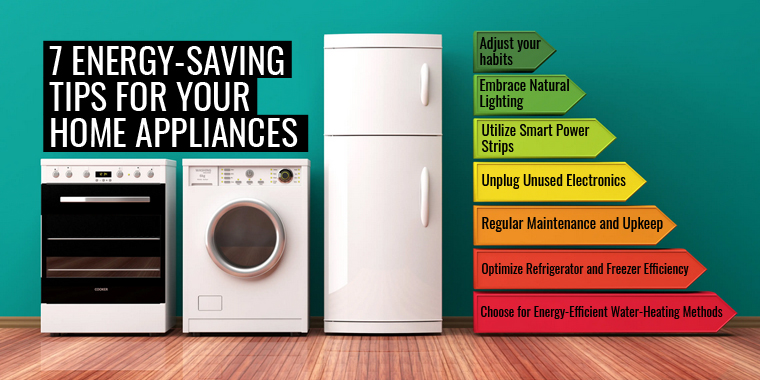
There are energy-saving tips for home appliances. We start with daily small actions to larger ones that benefit the environment and lower energy costs. Learn how to use energy more wisely and effectively to increase energy efficiency and discover where energy is wasted. More than merely conserving energy is involved in this. Here are some of the best energy-saving tips for making your house or place of business more energy-efficient.
Some Best Energy Saving Tips–
- Adjust your habits:
Having good energy-saving products doesn’t give you the best outcome; you only need to adjust your daily habits. For example:
- Shutting off lights or appliances when not in use can help conserve energy.
- You may also use energy-intensive equipment less by carrying out household chores by hand, such as washing dishes or hanging up your clothing to dry instead of using a dryer.
- You may use energy monitoring tools to determine where the majority of the electricity in your house is being used.
You may modify which appliances consume the most power each day with this.
2. Embrace Natural Lighting:
Maximize natural lighting in your home to reduce reliance on artificial lighting.
- Open your drapes, blinds, and shades during the day to let light into your rooms.
- You can switch to LED light bulbs, which consume less energy and last longer than conventional incandescent bulbs.
This is one of many solutions, but it saves quite a bit.
3. Utilize Smart Power Strips:
Many electronic devices continue to draw power even when turned off or in standby mode.
- By using energy-saving tips, you can prevent this phantom energy loss.
- Intelligent power strips detect when devices are not in use and automatically cut off the power, reducing standby power consumption.
This simple solution can significantly affect your energy consumption and reduce electricity bills.
4. Unplug Unused Electronics:
Electronics and appliances consume energy when plugged in, even when not in use.
- Unplug devices without use or use power strips to switch off multiple devices at once effortlessly to prevent this standby power usage.
- Common culprits include phone chargers, laptops, gaming consoles, and kitchen appliances.
Adopting this practice can minimize wasted energy and reduce your carbon footprint.
5. Regular Maintenance and Upkeep:
Proper maintenance of your home appliances ensures optimal energy efficiency, can do this way:
- Clean or replace air filters in air conditioners and heating systems regularly to facilitate better airflow and reduce energy consumption.
- Similarly, cleaning the lint trap and dryer vents enhances the efficiency of your clothes dryer.
Pay attention to the maintenance recommendations provided by the manufacturers to keep your appliances running smoothly and efficiently.
6. Optimize Refrigerator and Freezer Efficiency:
To enhance your refrigerator and freezer’s energy efficiency:
- Ensure proper airflow around the appliances.
- Leave sufficient space behind and around them to allow heat dissipation.
- Regularly defrost manual-defrost freezers to maintain efficiency, as excess ice build-up can impede performance.
- Organize the contents of your refrigerator and freezer efficiently to minimize the loss of cold air when you open the doors.
This way, your appliances will consume less energy to maintain the desired temperature.
7. Choose for Energy-Efficient Water-Heating Methods:
Water heating is one of the energy-saving tips where you can save energy. Here are the following:
- Insulate your hot water storage tank and pipes to reduce heat loss during distribution.
- Consider installing low-flow shower heads and faucets to minimize hot water usage.
- If you have a dishwasher, use the energy-saving mode whenever possible, or wash dishes by hand using a water basin instead.
By adopting these practices, you can conserve energy and lower water heating costs.
When you start paying attention to your behavior, your need, and your home environment, you will surely get the vision of how you save energy. You’ll see a change immediately if you put some of our above energy-saving tips to use while saving power at home. In addition to lowering your power cost, you’ll also be helping the environment by lowering your carbon impact.
